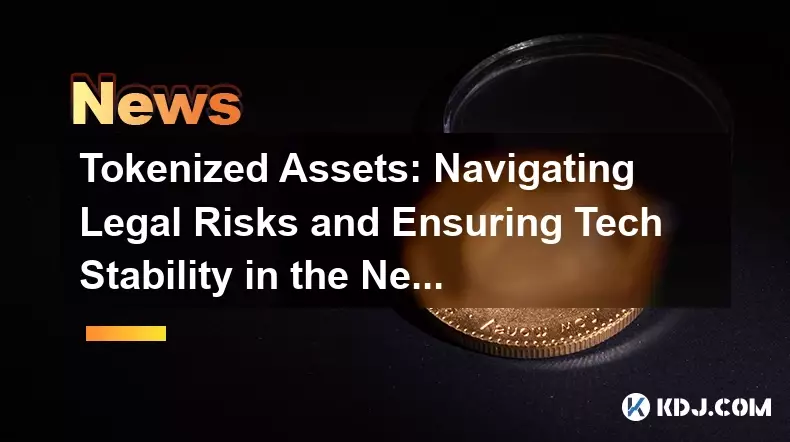Explore the evolving landscape of tokenized assets, the critical legal risks involved, and the importance of technological stability for the future of global finance.

Tokenized assets are revolutionizing global finance, but navigating the legal risks and ensuring technological stability are paramount. Let's dive in.
Tokenization: Reshaping Global Finance
Tokenization is transforming real-world assets like stocks, bonds, and real estate into digital tokens on blockchains. This shift unlocks fractional ownership, making traditionally illiquid assets more accessible. Imagine owning a piece of a $10 million building with just a $1 token, traded 24/7 on a digital market. This boosts liquidity and opens investment opportunities globally.
ARCS 2.0 exemplifies this trend, integrating Japanese kominka houses as tokenized assets, allowing travelers to book stays using ARX tokens, creating a self-sustaining ecosystem.
The Legal Labyrinth
Regulatory uncertainty poses the biggest challenge. What legal rights do token holders possess? Are tokenized stocks equivalent to traditional ones? Current securities laws don't address this new technology. Clear, consistent, and globally coordinated regulations are crucial. Jurisdictional arbitrage, where countries with lax rules become hubs for risky tokenized products, also threatens financial stability.
Technological Stability: A Must-Have
Interoperability is key. Different blockchains and traditional systems must seamlessly communicate. Scalability is another hurdle. Can blockchain technology handle the volume and speed of the global financial system? Systemic risks exist, too. Decentralized systems might create new failure points, like dominant digital wallet providers. Increased interconnectivity could also lead to rapid financial contagion.
The Bitcoin Debate: Data vs. Payments
The Bitcoin community is grappling with how to balance data storage and payment functionality. BIP-444, a proposed soft fork, aims to temporarily limit non-monetary data storage on the Bitcoin network to preserve block space for payments and mitigate legal risks from illicit content embedded on-chain. Supporters argue it's a defensive measure, while critics believe it undermines Bitcoin's original vision as a censorship-resistant ledger for multiple uses.
A Personal Take: Cautious Optimism
While the potential of tokenized assets is immense, a cautious approach is necessary. We need robust regulations, secure technology, and inclusive frameworks to avoid exacerbating inequality. As Larry Fink, CEO of BlackRock, noted, central banks are already questioning the role of tokenization and digitization, signaling a significant shift in the financial landscape.
The Road Ahead
The transition to a tokenized world will be complex, involving a co-existence of old and new systems. Countries and institutions that successfully navigate these challenges will define the next era of global finance. So, buckle up, buttercups! The future of finance is here, and it's tokenized!












































![Ultra Paracosm by IlIRuLaSIlI [3 coin] | Easy demon | Geometry dash Ultra Paracosm by IlIRuLaSIlI [3 coin] | Easy demon | Geometry dash](/uploads/2026/01/31/cryptocurrencies-news/videos/origin_697d592372464_image_500_375.webp)










































